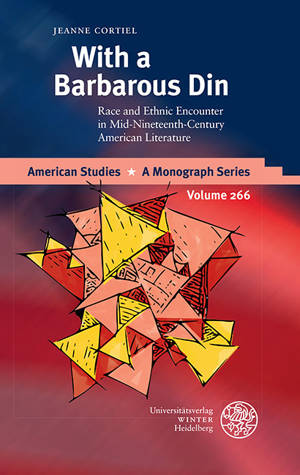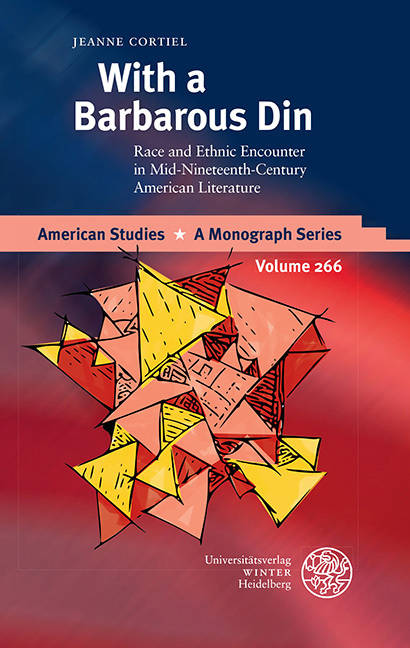
- Afhalen na 1 uur in een winkel met voorraad
- Gratis thuislevering in België vanaf € 30
- Ruim aanbod met 7 miljoen producten
- Afhalen na 1 uur in een winkel met voorraad
- Gratis thuislevering in België vanaf € 30
- Ruim aanbod met 7 miljoen producten
Zoeken
With a Barbarous Din
Race and Ethnic Encounter in Mid-Nineteenth-Century American Literature
Jeanne Cortiel
€ 74,45
+ 148 punten
Omschrijving
This study re-examines the mid-1850s, a time that remains central to American literary studies, exploring new ways of looking at this cultural moment through the twentieth-century concept of 'ethnicity.' This approach uncovers the hidden subversiveness of American literature as it responded to scientific race theory in the debate over slavery and also highlights the ways in which the texts examined in this study - Herman Melville's Benito Cereno (1855), Frederick Douglass' 'My Bondage and My Freedom' (1855), Harriet Beecher Stowe's 'Dred' (1856), Walt Whitman's 'Leaves of Grass' (1855), and John Rollin Ridge's 'The Life and Adventures of Joaqin Murieta' (1854) - powerfully resonate with ideas of affiliation and difference today. Focusing on a brief historical moment in the past from a decidedly twenty-first century perspective, the study reflects upon the texts' movement through time and demonstrates how race and ethnicity in these texts have been transformed under the pressures of history.
Specificaties
Betrokkenen
- Auteur(s):
- Uitgeverij:
Inhoud
- Aantal bladzijden:
- 281
- Taal:
- Engels
- Reeks:
- Reeksnummer:
- nr. 266
Eigenschappen
- Productcode (EAN):
- 9783825365578
- Verschijningsdatum:
- 1/02/2016
- Uitvoering:
- Hardcover
- Formaat:
- Genaaid
- Afmetingen:
- 135 mm x 211 mm
- Gewicht:
- 27 g

Alleen bij Standaard Boekhandel
+ 148 punten op je klantenkaart van Standaard Boekhandel
Beoordelingen
We publiceren alleen reviews die voldoen aan de voorwaarden voor reviews. Bekijk onze voorwaarden voor reviews.








